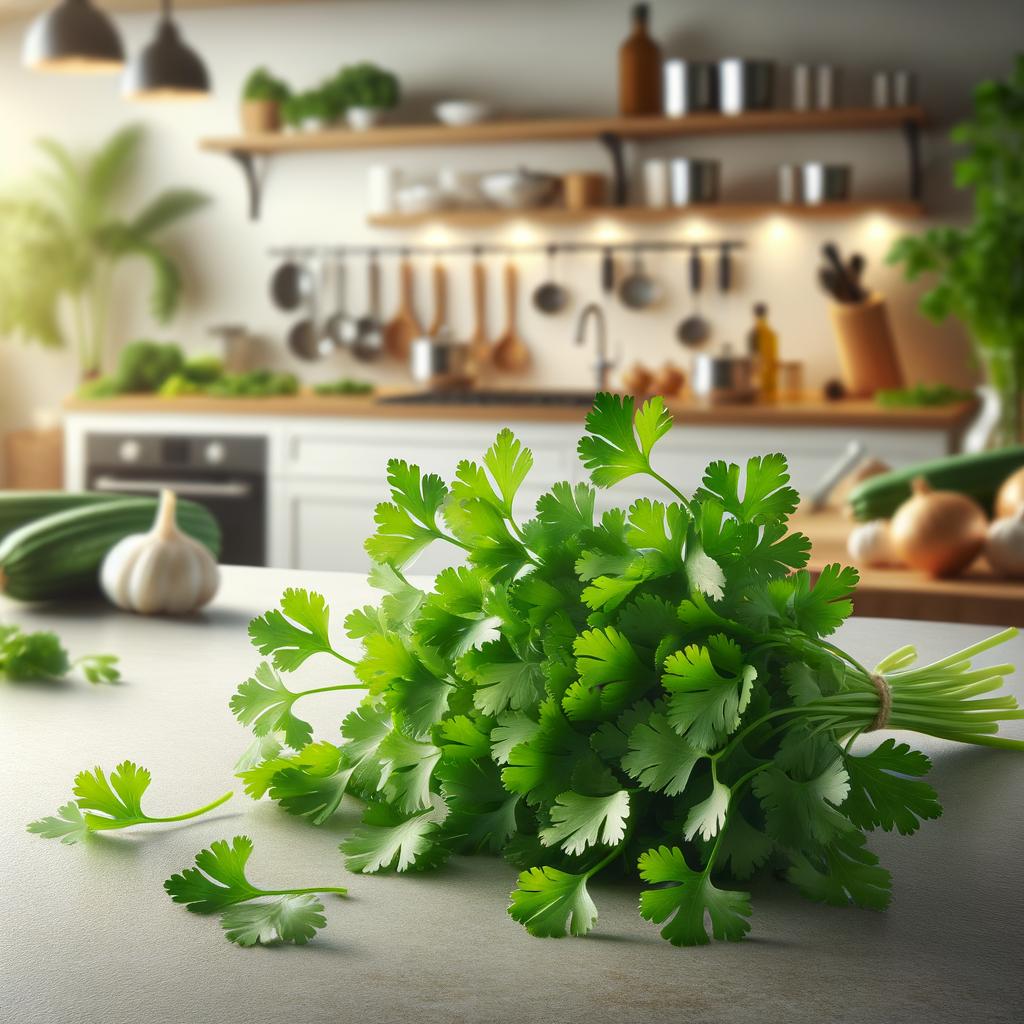Coriander

Description
Coriander, also known as Cilantro or Chinese parsley, is a versatile herb that graces our kitchen with its vibrant green leaves and distinctive aroma. Its appearance is similar to flat-leaf parsley, but coriander has a more delicate texture and a unique flavor profile. The leaves are tender, slightly serrated at the edges, and grow in a rosette-like formation. The flavor of coriander is a beautiful symphony of freshness, slight citrus undertones, and a hint of peppery warmth. The seeds, on the other hand, have a warm, spicy, and slightly nutty flavor. One of the unique characteristics of coriander is the polarized opinions it evokes - while some relish its flavor, others find it soapy due to a specific genetic trait.
Primary Uses
Coriander is a beloved ingredient in cooking, used in a plethora of cuisines worldwide. From the aromatic Thai curries, the tangy Mexican salsa, to the robust Indian masalas, coriander is a key component that lends a refreshing note. The leaves are often used as a garnish or in marinades, while the seeds are used whole or ground in spice blends. Apart from culinary uses, coriander has been used traditionally for its medicinal properties. It is believed to aid digestion, reduce inflammation, and lower cholesterol levels.
History
Coriander's history is as rich and varied as its flavor. It is one of the world's oldest spices, with its traces found in ancient Sanskrit texts, Egyptian tombs, and the Old Testament. It was a prized spice in the Greek and Roman civilizations, used in perfumes, love potions, and as an aphrodisiac. Over time, coriander has traveled the world, finding a place in various cuisines and cultures. An interesting folklore associated with coriander is its mention in the "Tales of the Arabian Nights" where the herb was used to cure the "incurable" impotence.
Nutritional Information
Coriander is not just a flavor powerhouse but a nutritional one too. It is packed with vitamins A, C, and K, along with minerals like potassium and manganese. It also contains dietary fiber, protein, and antioxidants. The health benefits of coriander include improved digestion, lowered blood sugar levels, and enhanced heart health. When compared to similar herbs like parsley, coriander has a higher content of dietary fiber, calcium, and magnesium, making it a valuable addition to a balanced diet. Despite its many benefits, coriander should be consumed in moderation as excessive intake can lead to sensitivity or allergic reactions in some individuals.
So, the next time you sprinkle coriander on your dish, remember, you're adding a dash of history, a sprinkle of romance, and a whole lot of nutrition!

